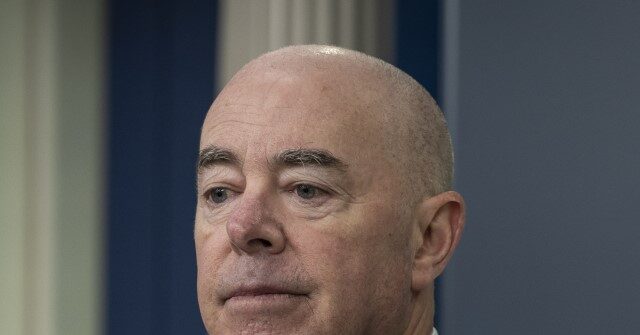In a recent turn of events, Department of Homeland Security Secretary Alejandro Mayorkas faced significant scrutiny following his contradictory statements regarding the preparedness of the Federal Emergency Management Agency (FEMA) for the current hurricane season. Just a few months prior, during his remarks in July, Mayorkas expressed confidence in FEMA’s capabilities, stating that the agency was “tremendously prepared.” He emphasized the importance of not only the agency’s readiness but also the need for impacted communities to be prepared for various disasters, including hurricanes, wildfires, and extreme heat. However, this narrative has shifted dramatically as Mayorkas admitted that FEMA lacks the necessary funding to navigate the remainder of the hurricane season, a crucial acknowledgment given that hurricane season officially extends until November 30.
The apparent disconnect between Mayorkas’s previous optimism and his recent admissions raises concerns about FEMA’s fiscal health and overall readiness. Despite Congress having allocated over $20 billion in an emergency spending bill to bolster FEMA, the agency’s capabilities have come under fire, particularly from Florida Attorney General Ashley Moody. Moody accused the current administration of misallocating funds meant for emergency services to support programs aiding undocumented immigrants, which she believes undermines the effectiveness of federal disaster preparedness initiatives. She described how the funding originally intended for FEMA’s emergency food and shelter program has been redirected, detracting from essential disaster response functions. This situation has led to fears that the mismanagement of resources could hinder timely responses to natural disasters and undermine public trust in the federal government’s ability to ensure safety during crises.
Moody’s alarm has been echoed by various officials and commentators who are increasingly concerned about the ramifications of FEMA’s funding issues on disaster-stricken states such as Florida, North Carolina, Tennessee, and Georgia. The recent devastation left in the wake of Hurricane Helene, which has claimed over 200 lives, accentuates the urgency of responsive and effective disaster management. With predictions of additional hurricanes on the horizon, both Moody and other critics have pointed to policy decisions made under the Biden administration that they assert have weakened FEMA’s operational capabilities, compromising support systems for American citizens during emergencies.
In the political landscape, these developments have also prompted reactions from former President Donald Trump, who has been vocal about his dissatisfaction with how the current administration has handled disaster response funding. His recent visit to Valdosta, Georgia, where he delivered relief supplies, has drawn attention to the differences in leadership styles and responses to immediate disaster needs compared to his administration. Trump’s engagement in the region, coupled with his planned appearance alongside Governor Brian Kemp, underscores the critical and ongoing attention required for supporting communities recovering from Hurricanes and other natural disasters.
Meanwhile, Vice President Kamala Harris has faced her share of criticism regarding her engagement with affected communities. Her perceived delay in visiting disaster-stricken areas, especially after attending a high-profile fundraiser shortly post-Hurricane Helene, has sparked backlash. Critics argue that such actions showcase a lack of sensitivity toward the suffering faced by countless individuals due to the hurricane’s devastation. Her eventual visit to the impacted regions only after Trump’s engagement has been framed by some as a necessary but belated response to a national crisis, reflecting the tensions between political priorities and urgent humanitarian needs.
Overall, the situation serves as a pointed reminder of the complexities surrounding disaster preparedness and response in the United States. The conflicting narratives presented by federal officials, compounded by allegations of mismanagement and inappropriate allocation of resources, have ignited debate over the effectiveness of current policies and the government’s role in safeguarding its citizens during emergencies. As the hurricane season progresses and communities grapple with the impacts of recent natural disasters, the questions raised about FEMA’s capabilities and funding could influence political discourse and public perception around disaster management in the months to come. The government’s ability to respond quickly and effectively to such crises hangs in the balance, prompting a reevaluation of priorities and strategies in safeguarding the welfare of affected populations.

